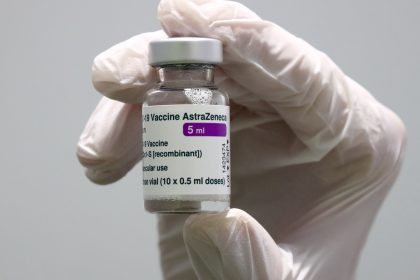Pediatricians’ Group Under Fire for Childhood Obesity Guidelines

ITASCA, Ill. — A long-overdue update to guidelines on how to treat childhood and adolescent obesity from the nation’s largest professional association of pediatricians is getting extensive blowback from treatment providers.
Though the American Academy of Pediatrics maintains obesity in young people can be treated successfully through a recognition that complex factors are at play in causing the chronic condition, critics say the academy’s recommendations are “highly problematic” and “likely to perpetuate the harmful effects of weight stigmatization.”
According to the academy, more than 14.4 million U.S. children and teens are currently living with obesity, a condition with serious short- and long-term health concerns that, when left untreated, can lead to cardiovascular disease and type 2 diabetes.
Its new paper, “Clinical Practice Guideline for the Evaluation and Treatment of Children and Adolescents With Obesity,” was published in the February 2023 edition of the journal Pediatrics.
The first comprehensive guidance to be published in the past 15 years, the guideline is accompanied by an executive summary and two technical reports, “Appraisal of Clinical Care Practices for Child Obesity Treatment. Part I: Interventions,” and “Appraisal of Clinical Care Practices for Child Obesity Treatment. Part II: Comorbidities.”
“Weight is a sensitive topic for most of us, and children and teens are especially aware of the harsh and unfair stigma that comes with being affected by it,” said Dr. Sarah Hampl, a lead author of the guidelines, in a written statement.
“Research tells us that we need to take a close look at families — where they live, their access to nutritious food, health care and opportunities for physical activity — as well as other factors that are associated with health, quality-of-life outcomes and risks,” Hampl continued.
“Our kids need the medical support, understanding and resources we can provide within a treatment plan that involves the whole family,” she added.
The guideline contains a number of action statements, which the academy says represent evidence-based recommendations for evaluating and treating children with overweight and obesity related health concerns.
These recommendations include motivational interviewing, intensive health behavior and lifestyle treatment, pharmacotherapy and metabolic and bariatric surgery.
The guideline does not discuss obesity prevention, which the academy says will be addressed in a forthcoming policy statement.
The guidance does describe the role of a primary care physician — or medical home — in overseeing intensive and long-term care strategies, ongoing medical monitoring and treatment of youth with obesity.
“There is no evidence that ‘watchful waiting’ or delayed treatment is appropriate for children with obesity,” said Dr. Sandra Hassink, a co-author of the guidelines and vice chair of the Clinical Practice Guideline Subcommittee on Obesity.
“The goal is to help patients make changes in lifestyle, behaviors or environment in a way that is sustainable and involves families in decision-making at every step of the way,” Hassink said.
Among the specific recommendations in the guidelines are:
- Comprehensive obesity treatment may include nutrition support, physical activity treatment, behavioral therapy, pharmacotherapy, and metabolic and bariatric surgery.
- Intensive health behavior and lifestyle treatment, while challenging to deliver and not universally available, is the most effective known behavioral treatment for child obesity. The most effective treatments include 26 or more hours of face-to-face, family-based, multicomponent treatment over a three- to 12-month period.
- Evidence-based treatment delivered by trained health care professionals with active parent or caregiver involvement has no evidence of harm and can result in less disordered eating.
- Physicians should offer adolescents ages 12 years and older with obesity weight loss pharmacotherapy, according to medication indications, risks and benefits, as an adjunct to health behavior and lifestyle treatment.
- Teens 13 and older with severe obesity (BMI ≥120% of the 95th percentile for age and sex) should be evaluated for metabolic and bariatric surgery.
Among those objecting to the new guidelines is the National Eating Disorders Association, which describes itself as the largest nonprofit dedicated to supporting individuals and families affected by eating disorders.
While it sought to acknowledge the time and expertise committed to crafting the new guidelines, the NEDA said it believes what it calls “the singular focus on BMI” as the critical metric for making recommendations for intensive health interventions and behavioral training “is highly problematic and is likely to perpetuate the harmful effects of weight stigmatization.”
“It is the opinion of clinicians and those with lived experience, that this is particularly powerful if that stigma is reinforced by a highly authoritative source, such as a child’s pediatrician,” the group says.
The association recommends that as the academy looks at national adoption and wide-scale implementation, it emphasizes the importance of individualized assessment of each child’s health parameters that may be associated with the child’s weight status.
“Further, we strongly recommend that in the implementation of the guidelines, pediatricians explicitly move away from a sole focus on BMI as the metric of health recognizing that responsible care plans must be built with the use of multi-disciplinary teams and evidence-based strategies for the optimal care of these children,” it says.
The Boston, Massachusetts-based Eating Recovery Center has gone so far as to circulate a petition, asking the academy to “reconsider and rewrite the guidelines.”
“As currently written, we expect these guidelines will cause harm and put young people at risk of developing or worsening eating disorders, disordered eating, and other mental and physical health issues as well as perpetuate harmful weight stigma and move us further away from achieving universal weight-inclusive care,” the center says.
So far, and less than a week after the group began circulating it, more than 4,000 people have signed the petition.
“As the leading providers of eating disorder treatment at higher levels of care, we strongly oppose the Clinical Practice Guideline for the Evaluation and Treatment of Children and Adolescent Obesity recently released by the American Academy of Pediatrics,” said Dr. Anne Marie O’Melia, chief medical officer and chief clinical officer at Eating Recovery Center, in an email to The Well News.
“Each year, approximately 1,700 children and adolescents enter our treatment programs with diagnoses across the spectrum of eating disorders, so we see firsthand the harm caused when a child’s relationship to food and their body is damaged,” O’Melia said.
“We also know that damage can begin or be progressed during medical care,” she continued. “The statements made and recommended treatment approaches within these guidelines, including bariatric surgery for children as young as 13 and weight loss medication for children as young as 12, perpetuate harmful weight stigma and move us further away from achieving universal weight-inclusive care.
“These guidelines include minimal guidance about screening for, or treatment of, disordered eating. As currently written, we expect these guidelines will cause harm and put young people at risk of developing or worsening eating disorders, disordered eating, and other mental and physical health issues,” O’Melia concluded.
Dan can be reached at [email protected] and at https://twitter.com/DanMcCue

























